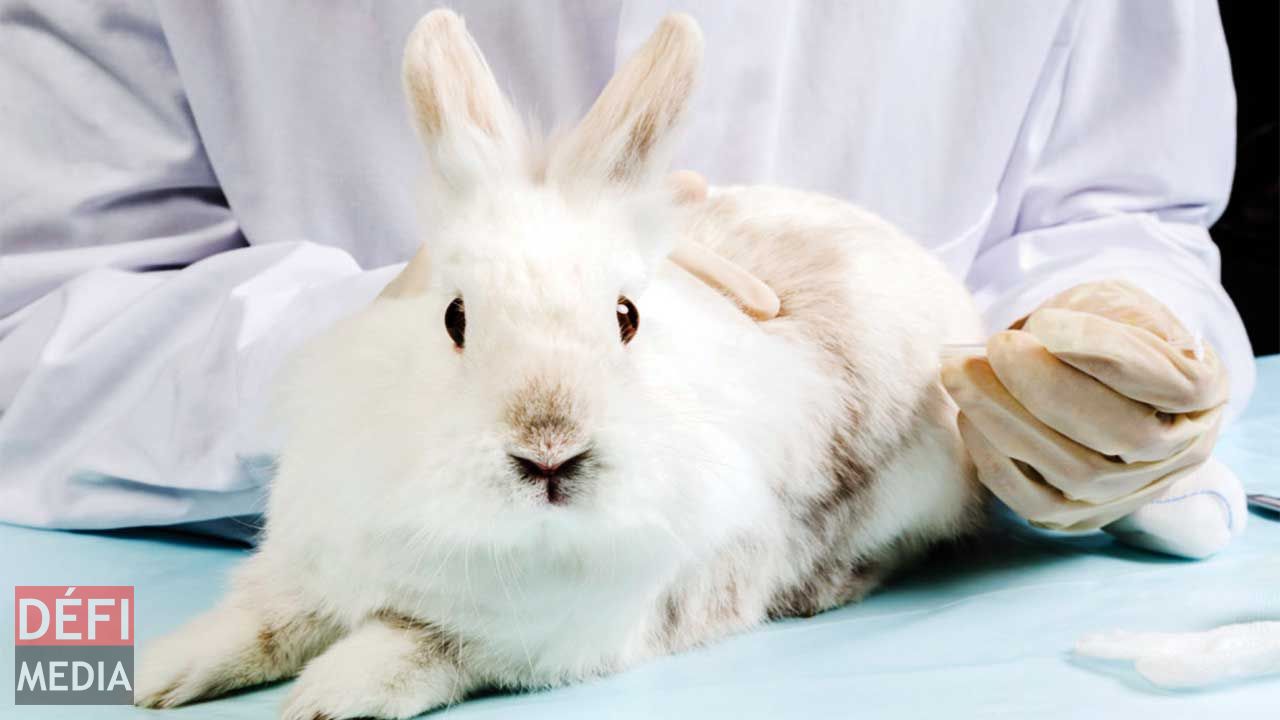
The harmful use of animals in experiments is not only cruel but also often ineffective. Animals do not get many of the human diseases that people do, such as major types of heart disease, many types of cancer, HIV, Parkinson’s disease, or schizophrenia. Instead, signs of these diseases are artificially induced in animals in laboratories to mimic the human disease. Yet, such experiments belittle the complexity of human conditions which are affected by wide-ranging variables such as genetics, socio-economic factors, deeply-rooted psychological issues and different subjective experiences. These words are from non-government organization Cruelty Free International.
Publicité
The NGO goes further to state that it is not surprising to find that treatments showing ‘promise’ in animals rarely work in humans. Not only are time, money and animals’ lives being wasted (with a huge amount of suffering), but effective treatments are being mistakenly discarded and harmful treatments are getting through. The support for animal testing is based largely on anecdote and is not backed up, we believe, by the scientific evidence that is out there.
What does the Mauritian youth think about the issue of animal testing? This is the subject of this week’s debate.
 Shameerah Peerkhan-Ghoora: “We have a moral obligation to protect the voiceless”
Shameerah Peerkhan-Ghoora: “We have a moral obligation to protect the voiceless”
Shameerah Peerkhan-Ghoora believes that animal testing should be condemned and banned worldwide. “It is one of the cruelest, most barbaric, and unnecessary forms of suffering one can subject another innocent being to, for the benefit of specie - humans. However, before reaching this stage, it would be beneficial to initiate the thought of boycotting such companies that manufacture products that have been tested on animals. By halting the consumerism drive towards animal-tested products, this may impact on the need of such experiments. Only to mention a few of the most popular brands that still make use of animal testing: MAC, Éstee Lauder, Clinique, Lancome, Revlon, Maybelline etc. A comprehensive guide to a wide range of cruelty-free alternatives can be found on Peta’s website.”
For her it is worth noting that animal testing is also conducted for medical research purposes. “Animal testing is more ethical in nature than anything else. Animals are sentient beings; they have the ability to feel fear. They are capable of recognizing and reacting to suffering. As per Jeremy Bentham, the highly regarded founder of modern utilitarianism: “…the question is not whether they can talk, or reason, but whether they have the ability to suffer”. Peter Singer, one of the world’s leading ethicists also strongly advocates animal rights: “if possessing a higher degree of intelligence does not entitle one human to use another for his or her own ends, how can it entitle humans to exploit non-humans?”
She argues that we have a moral obligation to protect the voiceless. “What makes us believe that the interests of humans are superior over those of animals? Both species have the same ability to feel fear and recognize suffering. We are both sentient beings. How can one possibly justify experimenting on animals for the benefit of humans? Purposely injecting diseases into healthy animals and subjecting them to further excruciating suffering, this should be classified as one of the most severe form of malicious act committed by us-humans. It is scary to observe that Mauritius is one of the leading suppliers of monkeys to be exposed to those experiments. Our Macaques haven’t been spared. Due to their cognitive abilities being very close to us humans, non-human primates are stolen from their mothers, confined in unnatural environments, abused and killed in painful experiments.”
 Ashneema Seebun: “Animals should be treated like human”
Ashneema Seebun: “Animals should be treated like human”
Over 100 million of animals are burned, poisoned, crippled and abused in laboratories for unnecessary tests argues Ashneema. “The basic knowledge of animals’ metabolisms being different to that of a human being is enough to understand the fact that they might not get diseases such as heart disease, many types of cancer, HIV, Parkinson’s disease, or schizophrenia. Yet, the drugs are still tested on them. As such, it is not surprising to find that treatments showing ‘promise’ in animals rarely work in humans. Animals have a basic moral right to respectful treatment. This inherent value is not respected when animals are reduced to being mere tools in a scientific experiment. They are similar to human beings in many ways; they feel, think, behave, and experience pain the same way that human beings do. So the question remains, why are they not treated with the same respect and care?”
“When mankind decides the fate of animals in research environments, the animals’ rights are taken away without any thought of their well-being or the quality of their lives. The pain and suffering that experimental animals are subject to is not worth any possible benefits to mankind. We, as human beings should refrain from trying to make life better for ourselves by randomly torturing and executing thousands of innocent lives per year. As consumers, let’s not to encourage production of cosmetics, drugs and toiletries that have been tested on animals, and encourage our peers to do the same. Let’s educate ourselves about the ethical and scientific aspects of animal use in research and teaching and let’s not encourage something that is morally wrong!”
 Nishta Jooty: “Animal testing is necessaryfor development”
Nishta Jooty: “Animal testing is necessaryfor development”
Animal testing is necessary for the development of medicines argues Nishta. “Animal research helps us understand how the human body might react with an investigational drug and whether it is safe or not. Cell and tissue culture and computer-modelling are also used to test drugs but some questions can only be answered through research on a living animal. It is essential to test medicines on animals to ensure safety before testing on human patients and volunteers. There is no alternative to that. When testing drugs for potential toxicity, the lives of human volunteers should not be put in danger unnecessarily. It would be unethical to perform invasive experimental procedures on human beings before the methods have been tested on animals, and some experiments involve genetic manipulation that would be unacceptable to impose on human subjects before animal testing. In fact, the World Medical Association Declaration of Helsinki states that human trials should be preceded by tests on animals.”
She further avers that non-animal methods such as in vitro cell culture techniques and in silicon computer simulation were developed to test the safety of cosmetics. “In fact, in European Union, the testing cosmetic products or their ingredients on animals are banned and it is illegal to sell or market a cosmetic product if animal testing has taken place on the finished cosmetic or its ingredients before being sold in the EU. As far as no adequate alternatives are developed for medicines testing, animals will have a vital role in research. Animal testing has contributed to many cures and treatments that have saved human lives. Many medical advances that we take for granted such as antibiotics, blood transfusions, vaccines, insulin and many more could never have been achieved without animal research.”
 Thareenee Parapen: “We have to consider animal rights”
Thareenee Parapen: “We have to consider animal rights”
For many decades there has been much controversy surrounding animal testing says Thareenee Parapen. “For scientists, it is clear that the only way to finding cures to many diseases is by administrating them to animals and then study them for a long period to find the right antidote. In some cases it has helped finding treatments and appropriate drugs such as vaccines, insulin, antibiotics and many more. On the other hand, it is well known that the diseases are induced into animals in an artificial way and very often once the remedy is found it does not work on humans despite promising results in animal tests. The biological make up of humans and animals is never exactly the same and experimenters are misled. Consequently, the animals have been removed from their natural habitat and they have suffered for no valid reason.”
For the lady, animal testing for finding cures for diseases is one thing but testing for cosmetics is unacceptable and while it has been banned in some countries like Britain and in Europe, it is still practiced in other countries. “The fact that animals are used to test cosmetics products is barbaric, especially nowadays when there are other alternatives such as human cells and tissues or computer-modeling techniques. Today with the tremendous progress in sciences, there are many other substitutes to animal testing like, human-based micro dosing, in vitro technology, human-patient simulators, cell-based tests and tissue models can be used to determine whether drugs, chemicals or cosmetics are safe.”
She adds that although it seems that there is no definite right or wrong to the problem, it is however clear that the suffering while doing tests on animals has to be minimized and animals should not be abused. “They should be treated humanely. In a civilized society it is high time that we start considering animal rights. The law should make some provisions to ensure that torture and mistreatment of animals are minimized. Of course the cynics will accuse us of being sentimental, emotional and guilty of anthropomorphism. To those people we shall reply that animals do have feelings like us and as humans we have a moral duty to act with compassion and good conscience not only towards fellow human beings but also towards animals.”

Notre service WhatsApp. Vous êtes témoins d`un événement d`actualité ou d`une scène insolite? Envoyez-nous vos photos ou vidéos sur le 5 259 82 00 !
























![[Blog] Gudhi Padwa : A joyous start to the New Year](https://defimedia.info/sites/default/files/styles/medium/public/gudi_thumb.jpg?itok=BzpMZrT8)






